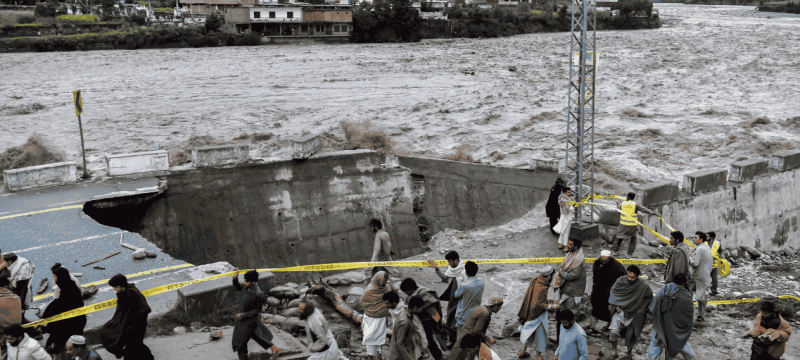Every monsoon, Karachi faces devastation that feels less like a natural disaster and more like a man-made crisis. The city contributes nearly one-fourth of Pakistan’s GDP, yet it receives development spending that is disproportionately low. This imbalance has reinforced poor infrastructure, weak governance, and recurring chaos during heavy rains.
Observers argue that these are not simply administrative lapses. Instead, they are symptoms of a deeper structural issue tied to the political economy of disasters in Pakistan.
The cycle is familiar. Floods strike, foreign donors pledge funding or loans, and relief operations begin. Temporary rehabilitation and cash transfers follow. But then, with the next flood, the cycle starts again. Critics believe this repetition reflects a political economy that profits from crisis rather than preventing it.
Such disasters also provide politicians with public visibility at times when their credibility is low. Relief efforts, instead of being purely humanitarian, often serve as tools of influence. Allegations of fraud, such as the PricewaterhouseCoopers audit that exposed misuse of flood aid in 2010, have only deepened mistrust in the system.
In Karachi, poor drainage and mismanagement make heavy rains deadly. Even though the meteorological department predicted downpours, emergency measures were delayed. The city’s capacity to drain water is only around 40 mm, making widespread flooding inevitable.
Experts argue that the solution lies in stronger early warning systems, resilient infrastructure, and community preparedness. Countries like Japan, the Netherlands, and Bangladesh show that rising climate risks do not have to result in rising death tolls.
For Pakistan, rebuilding trust is crucial. A transparent, independently audited Disaster Fund could reassure donors that aid reaches genuine victims. Unless governance reforms address the political economy of floods, each monsoon will remain less a natural tragedy and more a political performance.
Read Also: Heavy Rainfall to Hit Pakistan from Saturday, Flood Warnings Issued Nationwide







